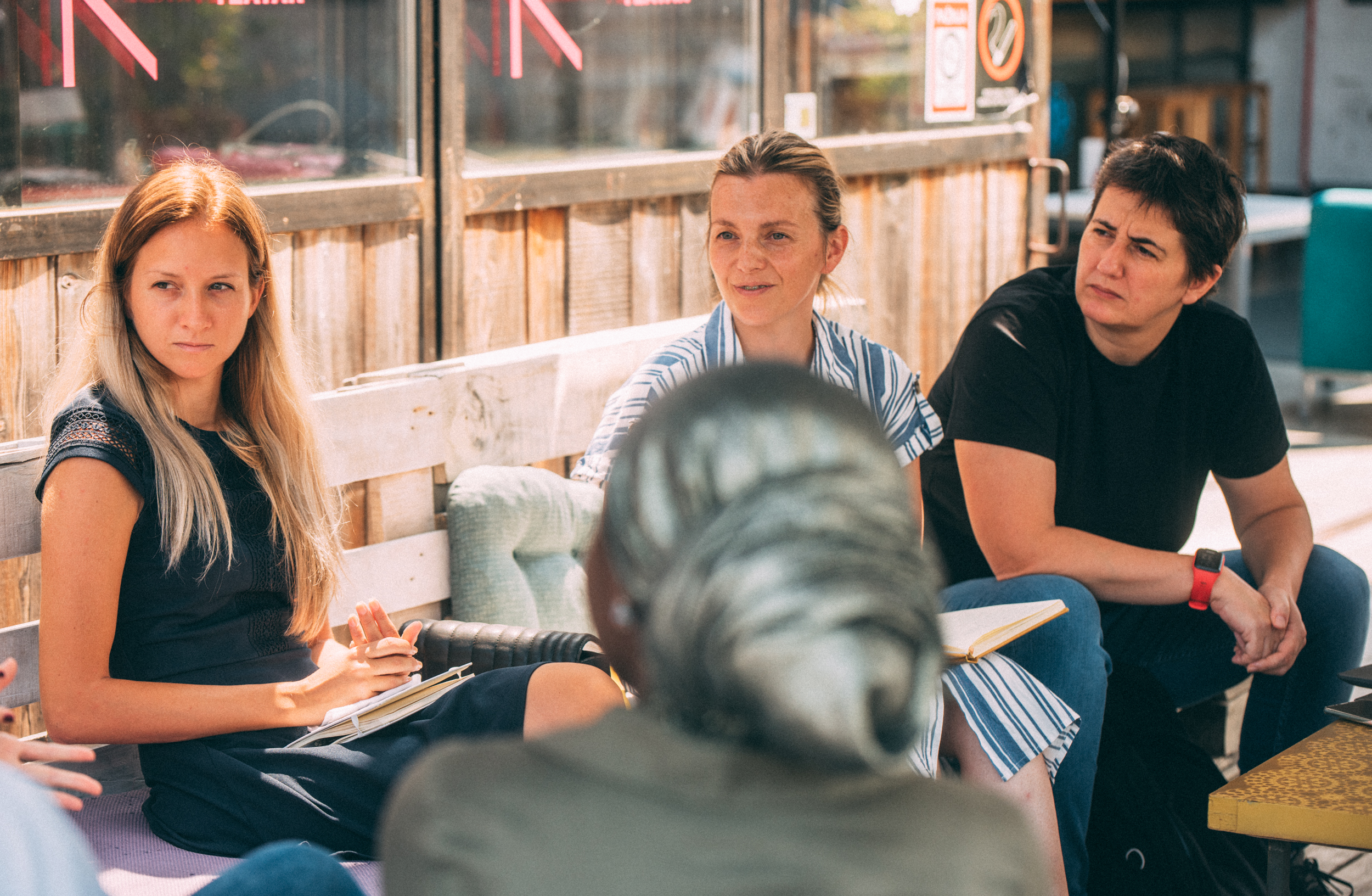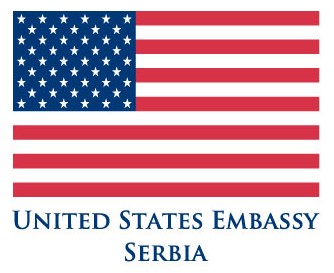Hotline: +381 61 63 84 071
Together we are creating changes - my voice counts as well

In order to open a space for activist engagement of women who were in NGO Atina's program, and to advocate for changes in the support system for victims of trafficking and gender-based violence, a Breakthrough Council was formed in the previous year, consisting of girls and women with the experience of violence and exploitation who used the services of the support programs of NGO Atina.
Since its establishment, the Council has worked on building personal capacities of its members in the field of activist and advocacy engagement and has held a set of meetings with representatives of various parts of the support system for victims of trafficking and gender-based violence. We worked on defining a set of recommendations that will direct end beneficiaries directly to the support system, so that the system would be as accessible and efficient as possible to respond to the needs of its beneficiaries, while protecting and respecting all beneficiaries' rights and their full participation.
One in a series of meetings held by members of the Breakthrough Council this month was a meeting with representatives of the United Nations Population Fund (UNFPA) in Serbia. For the members of the Council, it was an extremely important opportunity, primarily because of the joint mission that the group shares with the Fund, which is to change harmful policies and actions against women and girls in the field of reproductive health, gender-based violence, education and joint efforts to spread knowledge. primarily among young people on these sensitive topics.
At the very beginning of the meeting, the members of the Breakthrough Council informed their interlocutor about the idea and real need for the existence of such a body, their goals, the reasons that led to their personal engagement and opening the door to activism, and further plans to be prepared by the end of the year.
The members of the Breakthrough Council are especially engaged in introducing professionals who are in daily contact with young people, but also in introducing young people to the problem and consequences of early marriages and the danger of constant relativization and approval as something acceptable for certain communities in our society. During the meeting, they especially talked about the need for cooperation of all parts of the system in order to create opportunities for all girls, to ask themselves and to choose for themselves what they want in their lives and what they do not. One of the key conclusions of the meeting was how important it is for every representative of the support system to say loudly NO to discrimination and violence and not to allow excuses to be found for it, but always and everywhere fight for greater opportunities for those most often discriminated in Serbia. As well as how important it is for each part of the system to go proactively towards the end user, to work "with the victim" and not to "work for the victim".
The Council also includes women from the migrant population, and they followed with special attention the reactions of representatives of relevant institutions to the latest cases of xenophobic and racist statements by certain political representatives and sections of society. Together, they referred to the importance of advocating for changes and improvements in the system, but also preparing the community for those changes. The members of the group confirmed how important the role of cultural mediators is, it is crucial that in all services where migrants can be end users, there are translators and people who know the social, cultural concept from which the users come. The interlocutors agreed that it is still necessary to work on education and breaking down prejudices, both among professionals and young people. These are all topics that the members of the group opened at the meeting. The common conclusion is that it is necessary to continue working on strengthening the capacity of service providers as well as expanding the range of services, especially for migrant women, who have encountered multiple discrimination in Serbia, and especially women who travel alone or have experienced travel or residence in Serbia. some form of violence or human trafficking. They agreed that information can be obtained at a time when it is necessary, but that there is a lack of specialized services and adequate access for women from different cultural and linguistic areas.
Inevitably, the COVID-19 pandemic and the way it affects people, and especially the risks it brings to marginalized sections of society with a special focus on women and girls, are imposed as a topic and a big problem at all meetings. It is necessary to plan ahead to ensure an adequate anti-trafficking community response to another potential wave of coronavirus infection, as well as to prepare assistance programs for the most at-risk sections of society already at poverty, so as not to fall into the traps of traffickers. people. It is especially important during a state of emergency due to various circumstances, in this case a pandemic, to provide victims of trafficking and gender-based violence, access to safe and urgent accommodation, health care and psychological assistance, to more easily get out of trafficking and be protected from re-victimization. , and due to the repetition of the situation and isolation, uncertainty and feelings of powerlessness. Some of the conclusions of the joint meeting.
After the meeting, which was only an introduction and introduction to the existence and work of the Breakthrough Council, a communication channel was established for all proposals and ideas on possible joint campaigns and advocacy challenges, which will aim to change destructive attitudes and practices that do not value girls and women. and to work together to build a more equitable society with as few discriminatory practices as possible.

This article was written within the project funded in part by a grant from the United States Department of State. The opinions, findings and conclusions stated herein are those of the author[s] and do not necessarily reflect those of the United States Department of State.












 FACEBOOK
FACEBOOK TWITTER
TWITTER YOUTUBE
YOUTUBE